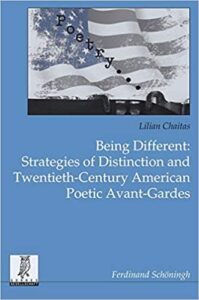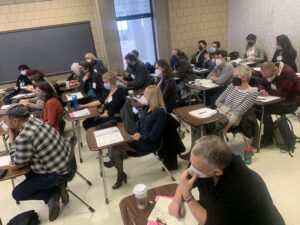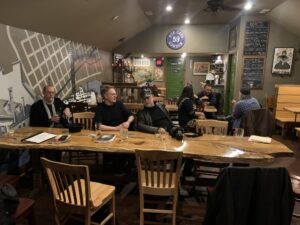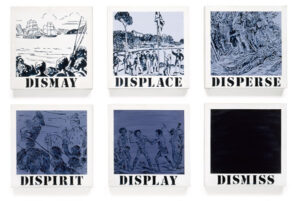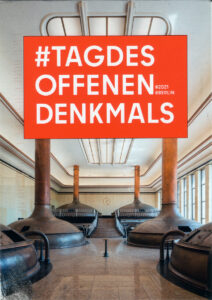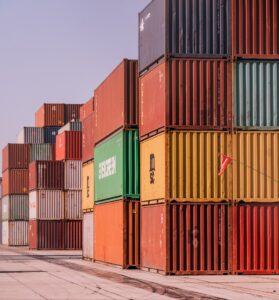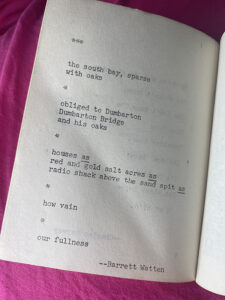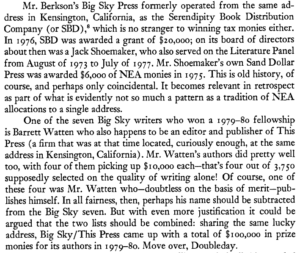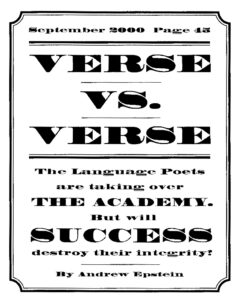From Scales (11)
by Carla Harryman
to Russian/Ukrainian Poets
—checking email every five minutes for an answer. I got it I got the answer and it didn’t make me look so good.
Pounding on your own goodness sounds a bit tarnishing.
Say stinging.
Have a latke.
The smell of onion in the vapor of potato reminds me of the Russian poets in our kitchen drinking vodka at a somewhat earlier hour than this.
They did not sleep.
They do not sleep much now either.
Up all night in your fantasy. Some of them dead.
No not in mine. In mine they sleep willowy sorts of idealisms smothering vast plains sequestered in small farms and mushroom gathering.
They are almost all gone now, but there are more.
Some. Alexei. Others too are lauded on the lips of the still living.
Alexei turned vitriol blue.
Hmmm . . . I thought it was a reference to hydrated copper.
Ukrainian rubble recalls each dead poet in Russia as Ukrainian.
They have to be careful now. That rubble disseminates in the elements spreading across the globe.
As ever but more so.
Tabling the turn and turning.
So. Let them leave as they did.
They leave again and again.
So and so is arriving.
A ways off.
They are arriving.
We break hearts with them when they arrive with stoic pretense.
And then we get out the vodka.
They have not yet slept.
We keep the vodka in the freezer in case someone is looking for it.
I confess I didn’t understand entirely, these males. But Alexei—
Now understanding, forget.
—I was a poet in the company of Alexei.
The point is disbursed in rubble—
Yes forget understanding.
—and never made again in the same way.
That’s right. It’s missing varnish.
—March 20, 2022 … More


